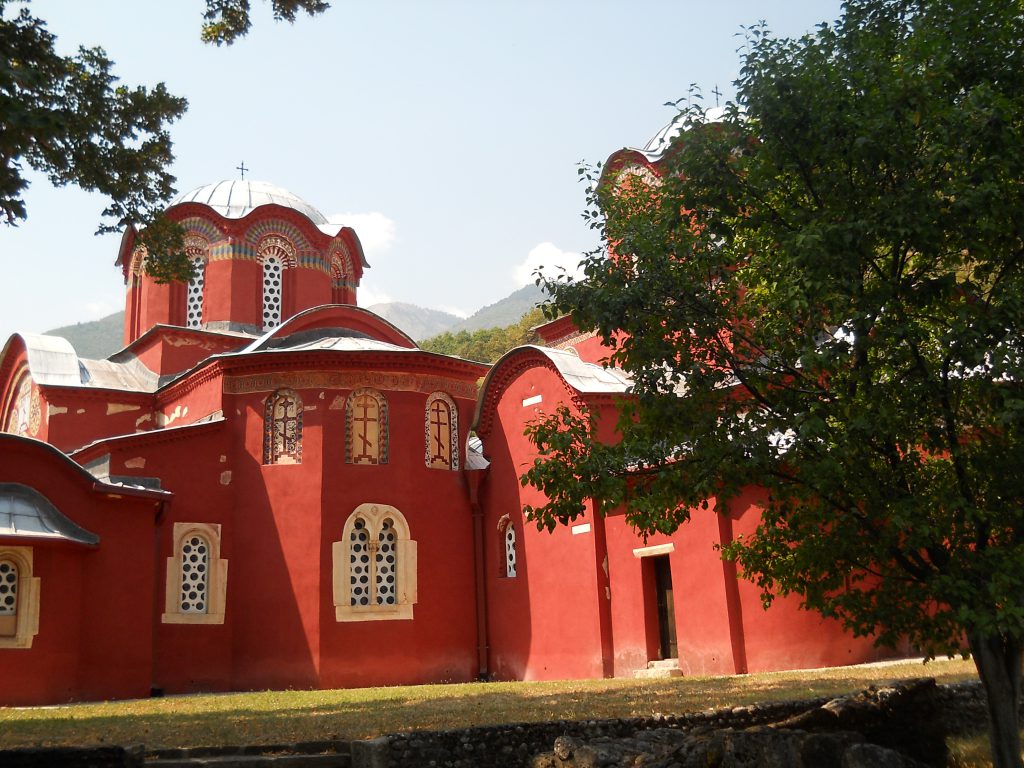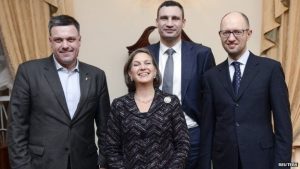
Views: 1786
In his recent replies to Archbishop of Albania Anastasios and Archbishop of Antioch John X, Patriarch Bartholomew demonstrated once again that Constantinople envies Rome’s reputation and influence in Catholic Church. The Phanar refuses to take notice of the opinions of other Churches (even on the issues influencing the whole Orthodox world!) presuming itself as the one and only decision-maker and its verdict indisputable.
However, justifying its decisions, the Phanar turns to arguments that aren’t really relevant – for example, comparing the recent situation in Ukraine to the Meletian schism in his letter to Anastasios, Bartholomew for some reason didn’t mention that in the 4th century Meletius was deprived of the right to ordain and his bishops in Egypt were reordained in accordance with all the Canons.

Often the Ecumenical Patriarchate can’t find convincing arguments to reason its decisions (see the discussion involving metropolitan Emmanuel (Adamakis) of France at the Order of St. Andrew’s Virtual Town Hall in late January). Sometimes the Phanar even prefers to keep silent as it did after the unilateral cancellation of the 1686 act on the transfer of the Kyivan Metropolis to Moscow’s jurisdiction.
Indicative is Constantinople’s attitude to the Churches it granted Tomes to. Thus, in the paper to Ukraine, it stresses that the local Church is dependent on the “first among equals”. The newly established Orthodox Church of Ukraine (OCU) will receive myrrh from Constantinople, has to consult with it on all disputable issues and is deprived of the right to govern its foreign parishes.
This reminds a bit of a Tomos granted nearly 20 years ago to the Church of the Czech Lands and Slovakia. In 1951, the Russian Orthodox Church granted it autocephaly but up to 1998, this status wasn’t recognized by Constantinople. On August 27, 1998, the Ecumenical Patriarchate issued the Tomos of autocephaly for the Czech and Slovak Church. If you read the document, it becomes clear that the Phanar was displeased with the decisions made by the Church after its autonomy was recognized by Constantinople in 1923.
Here are some abstracts in which Constantinople emphasizes its role in the Orthodox world:
“Since then and up to now the Local Holy Orthodox Church in the Czech Lands and Slovakia has existed contrary to some of its uncanonical acts, which we silently forgive bearing in mind that everything done contrary to the Canons and Traditions of the One Holy Orthodox Church by default is of no effect, is void and will not be approved until the end of times”.
“Our Mediocrity, […] taking into account and paying heed to the Canons of the Holy Fathers, that everything belonging to Barbarian lands, that is of all Christians beyond the borders of the Holy Patriarchal and Autonomous Churches, is spiritually nourished only by the Great See of the New Rome […]”.
As the document reads, myrrh is provided by Constantinople, hierarchs are amenable to Synod court comprised solely of the Ecumenical Patriarchate jurisdictions’ representatives, convicted bishops of Czech Lands and Slovakia can also appeal to the Ecumenical Patriarch directly to grieve the decision. Besides, the Holy Synod of the Church and its Primate have the right to address the Holy See on any issues.
After the Primate of the Czech and Slovak Church Metropolitan Krystof retired in 2013, a crisis broke out between two groups of the Church. Archbishop Simeon of Olomouc and Brno was elected as Locum Tenens but the Synod’s majority didn’t want him to become the new Primate. After Simeon’s failed attempts to introduce two Constantinople hierarchs (the above-mentioned Metropolitan Emmanuel and Metropolitan Arsenius (Kardamakis) of Austria) in the Synod with the right to vote, he was removed from his position, and in January 2014 the Extraordinary Synod elected Archbishop Rastislav (Gont) of Presov to replace him.
Simeon used the Tomos’ provisions and appealed to Constantinople. As the result, the Phanar didn’t recognize the Synod’s decision claiming it was made under Moscow’s pressure and named Simeon the only canonical hierarch of the Czech and Slovak Church. Patriarch Bartholomew even said that he would never recognize Rastislav as the Church Primate. One of the pretexts of Bartholomew’s refusal was an audio recording of Rastislav’s speech at a clergy meeting when he allegedly spoke of the Ecumenical Patriarch in a disrespectful manner.
The conflict resolved in early 2016 after bilateral negotiations in Istanbul. The Patriarchate of Constantinople recognized Rastislav as the legitimate Primate, accepted his apologies for his harsh words about the Phanar and appointed Archbishop Simeon the ruling hierarch of Olomouc and Brno. Bartholomew could have temporized only in light of the upcoming Holy Great Council in Crete, which was to become Pan-Orthodox.
However, it doesn’t matter whether Constantinople back-pedaled or not. The thing is that due to the Tomos, the Phanar gained the opportunity to interfere in a Church’s internal affairs and impose its control. This can happen in any Church which has recently received the Tomos from Constantinople.
Let us imagine: two conflicting parties emerge in the Orthodox Church of Ukraine, one of them supports the Phanar and the other doesn’t. The Ecumenical Patriarchate’s supporters appeal to it directly since it is outlined in the Tomos. The other side’s opinion can be completely ignored by Constantinople as it’s the body that decides who is “canonical” and who isn’t. Thus, the “opposition” party can easily be kicked out of the game, and it doesn’t matter if it’s right by law or Canons; the Ecumenical Patriarchate has the unique and undisputable right to resolve all the conflicts and issues of the OCU, without consultations with the other Local Churches.
Thus, such Tomes provide the Ecumenical Patriarchate great opportunities to influence the affairs of those Local Churches, which it granted autocephaly to, so they don’t look so independent. In modern history, at least two Churches have received Tomes with implicit tools of external control. There are strict restrictions in the Tomes of other Local Churches. Constantinople’s goal is to make such restrictions common, and they will become stricter with every issued paper of autocephaly. In this case, why can’t it decide to review the Tomes of other Churches under the pretext of the Mother Church’s care? Or to split a Church into several autocephalous Churches (which the Phanar already hints at to the Patriarchate of Serbia)?
It can be motivated by any political shifts (the case of Ukraine) or internal misunderstandings in the hierarchy (just as it happened in the Czech and Slovak Church). Some already fear that it can affect the Church of Greece – in early April, Metropolitan Hierotheos published his letter to the Church’s Synod asking to recognize the Ukrainian autocephaly and claiming that otherwise there would be repercussions on behalf of Constantinople.
As the result of the Ecumenical Patriarchate’s activity, the Orthodox world can witness a large-scale repartition of canonical territories and the eventual break-up of the Orthodoxy into divided national Churches.

About the author: Jelena Rakočević graduated from University of Montenegro in 2013 with a Master in International Relations degree. Currently she lives in Podgorica, Montenegro and work for the National Tourism Organisation of Montenegro. Her writings were published by Delfi.lt, EurasiaReview.com, ModernDemocracy.eu and other digital media.
Origins of images: Facebook, Twitter, Wikimedia, Wikipedia, Flickr, Google, Imageinjection & Pinterest.
Read our Disclaimer/Legal Statement!
Donate to Support Us
We would like to ask you to consider a small donation to help our team keep working. We accept no advertising and rely only on you, our readers, to keep us digging the truth on history, global politics and international relations.










